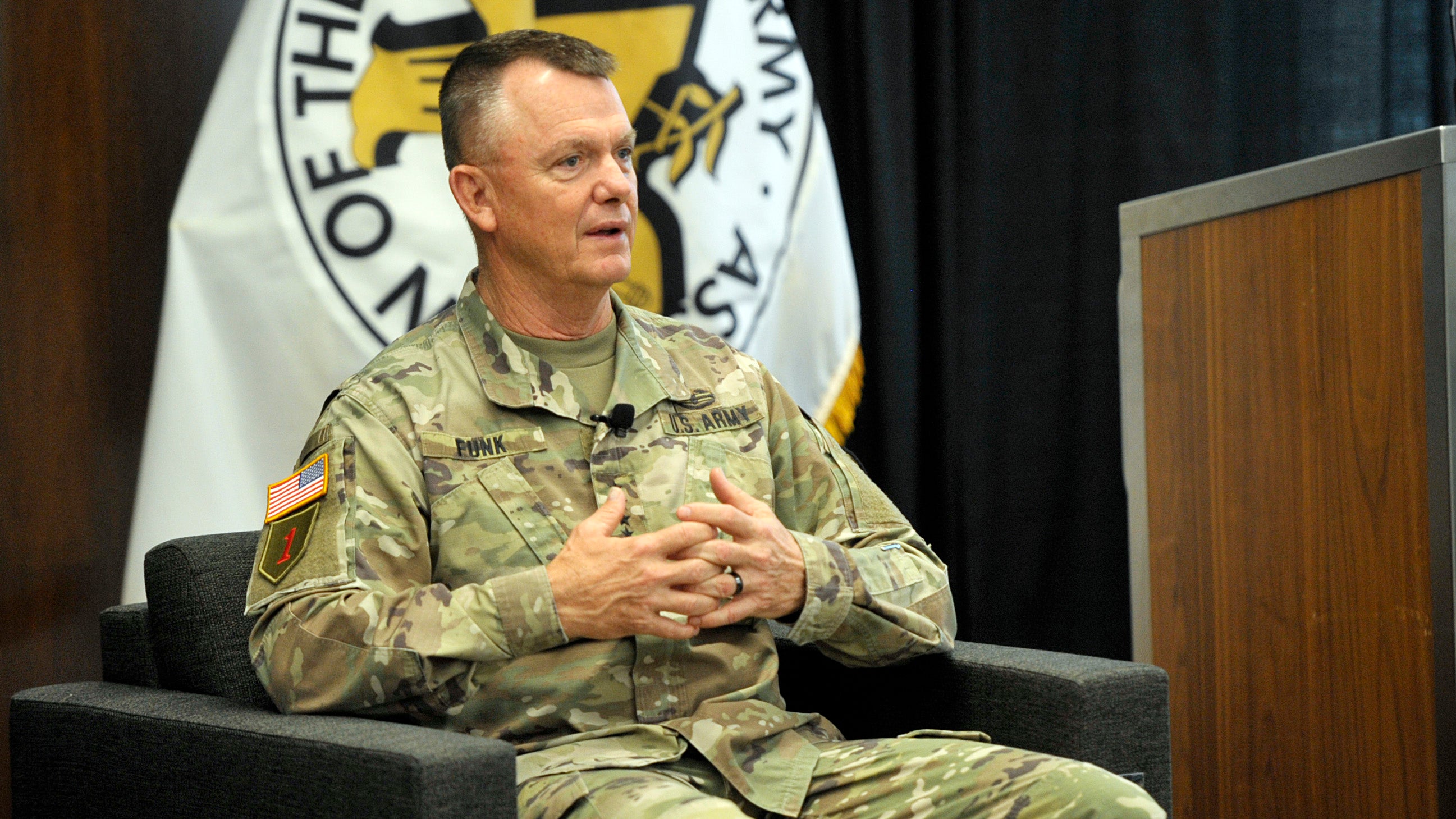Interest in Military Service Declining
Interest in Military Service Declining

The general officer in charge of recruiting the next generation of soldiers said the shrinking pool of young people who are eligible to serve represents “a problem in our nation.”
Gen. Paul Funk, commander of the Army Training and Doctrine Command, said the two biggest hurdles to qualifying young people for service are obesity and addiction, which he considers “national security issues that we’ve got to address.”
But ahead of those two issues and, more important, is a prevailing lack of willingness to serve. More than 50% of young people “have never considered service to the nation,” Funk said June 2 at a breakfast meeting hosted by the Association of the U.S. Army as part of its Coffee Series.
“If you want to ask me what the biggest challenge facing our nation today is, it’s the propensity to serve, it’s down at its lowest level,” he said.
Funk sounded the alarm on the poor physical condition among young people, projecting that the physical and mental demands of war in 2030 will require fit soldiers who can do tough work and possess deep mental resilience and physical endurance.
Funk also talked about the gulf between the Army and the American people. He said 83% of people who are joining the Army have a relative who served, noting that while that may sound great, it’s creating a “warrior class” that is not necessarily desirable.
“We want to be America's Army, which means we have to get out and tell our Army story all over the country, we’ve got to reconnect with the American people in terms of people that know a service member, that have actually seen or spent time with someone in a great Army,” Funk said.
Even among the young people who want to join because of a relative’s service, he said, there are only “a few hundred thousand that are even qualified to serve, so we’ve got a problem in our nation.”
These challenges are compounded by efforts in the private sector to attract workers with some of the same benefits the Army offers, such as education benefits, bonuses, higher wages, medical and dental plans and college repayment programs.
“We’re competing with all kinds of great industry partners,” Funk said.

